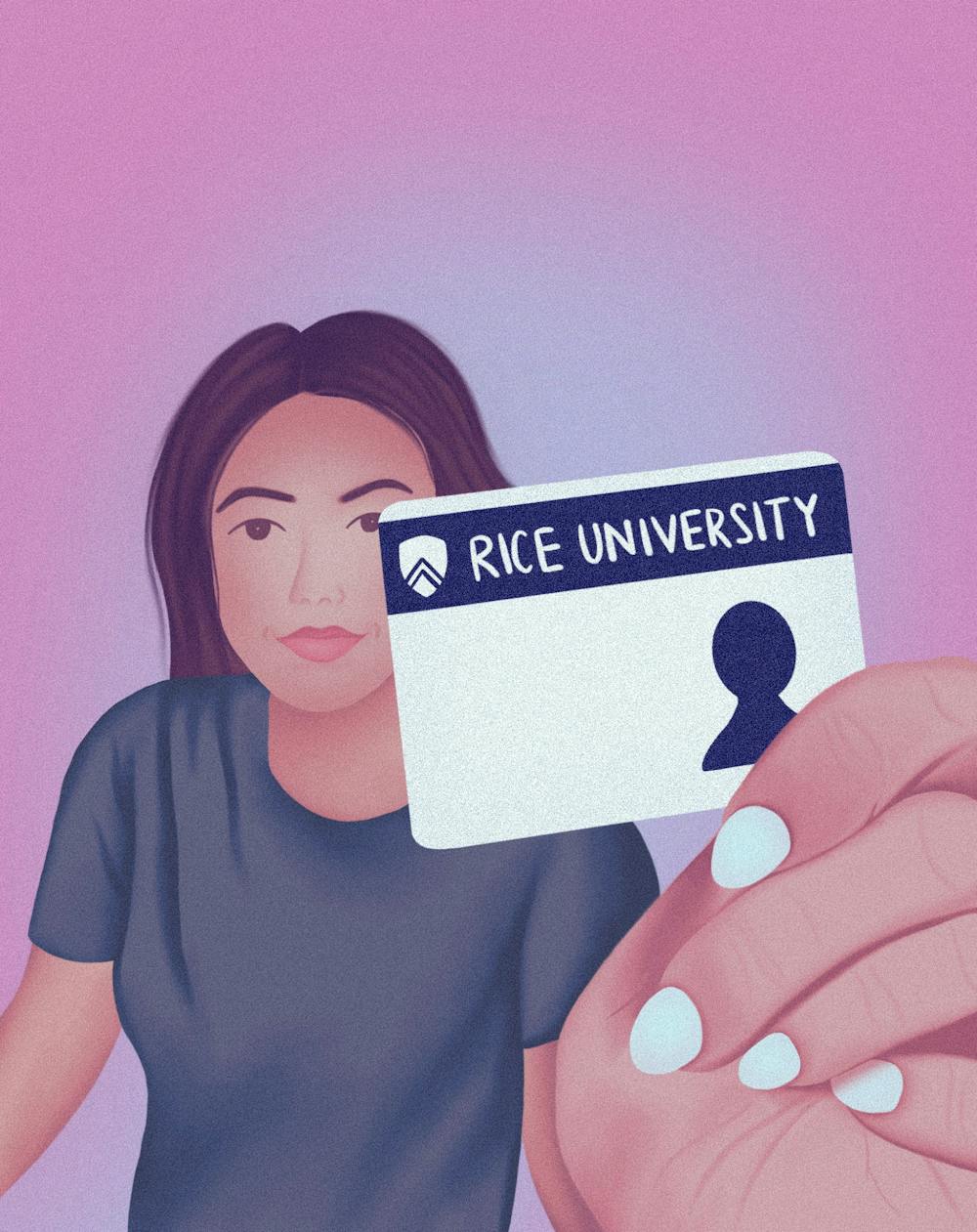Redesigned ID cards add tap functionality

Rice has started issuing redesigned ID cards equipped with tap functionality. The new matriculating class was the first to be issued the new IDs, equipped with both a magstripe and proximity functionality.
Solomon Ni, Student Association President, said that he is glad to see Rice issue this update.
“It’s more of getting with the times,” Ni said. “Magstripe is a very old technology and a lot of post-secondary institutions have been moving away from magstripe towards [Near Field Communication and Radio Frequency Identification Chips]. I’m very happy to see Rice University move in that direction.”
Jessica Solomon, the Director of Finance and Administrative Services for the Rice University Police Department, said in an email to the Thresher that changes for ID cards are part of a multi-year campus safety project allowing dual technology card readers. Alongside the construction of new buildings such as the O’Connor Building for Engineering Science and new residential colleges, combined proximity and magnetic stripe card readers have been installed. Moving forward, these readers will continue to be installed in all classrooms and other teaching and training rooms across campus.
“We have experienced constant wear and tear with our current magnetic stripe ID cards,” Solomon said. “Since proximity cards do not require swiping, they endure very little wear and tear over the years. The contactless nature of proximity cards enables faster and more convenient and secure access compared to traditional key-based or swipe-card systems.”
New students and faculty have already been issued new ID cards. Current students may purchase a new proximity card for $15, or replace their ID card due to regular wear and tear for a magnetic stripe card at no cost, according to Solomon. This raise in price from $10 to $15 comes due to the increased cost of proximity cards as well as inflation on the cost of ribbons and laminate rolls. Solomon also said that RUPD and the Office for Information Technology are exploring options for Apple Wallet and phone integration for contactless entry.
With the transition to proximity ID cards, the Student Association advocated for redesigning the cards to keep them up to date and unify the branding. Design changes include a smaller font for legal names on the back to be more inclusive of students who do not go by their legal name, said Ni.
Paige Sutter, a junior at McMurtry College, was surprised to receive a proximity ID card when replacing her old ID.
“I saw that they had the tap IDs coming out, so I tried it and then it worked. I didn’t even mean to get it,” Sutter said. “I like the tap because it makes me feel kind of fancy. I think it’ll also improve accessibility for a lot of other people.”
Sutter received her proximity ID at no extra cost, she said. However, other students were presented with the option to reprint their ID on a magstripe card or pay the fee to receive a proximity card.
“I don’t think that they should be making people pay for a change that they didn’t ask for,” Sutter said. “You know it’s like, ‘We decided to do this. If you want it, you have to pay us.’ That’s not my fault that you just decided to reprint them.”
Between July and August, RUPD has issued around 3,000 proximity cards to students and faculty.
More from The Rice Thresher

Worth the wait: Andrew Thomas Huang practices patience
Andrew Thomas Huang says that patience is essential to being an artist. His proof? A film that has spent a decade in production, a career shaped by years in the music industry and a lifelong commitment to exploring queer identity and environmental themes — the kinds of stories, he said, that take time to tell right.

Andrew Thomas Huang puts visuals and identity to song
Houston is welcoming the Grammy-nominated figure behind the music videos of Björk and FKA twigs on June 27.

Live it up this summer with these Houston shows
Staying in Houston this summer and wondering how to make the most of your time? Fortunately, you're in luck, there's no shortage of amazing shows and performances happening around the city. From live music to ballet and everything in between, here are some events coming up this month and next!

Please note All comments are eligible for publication by The Rice Thresher.